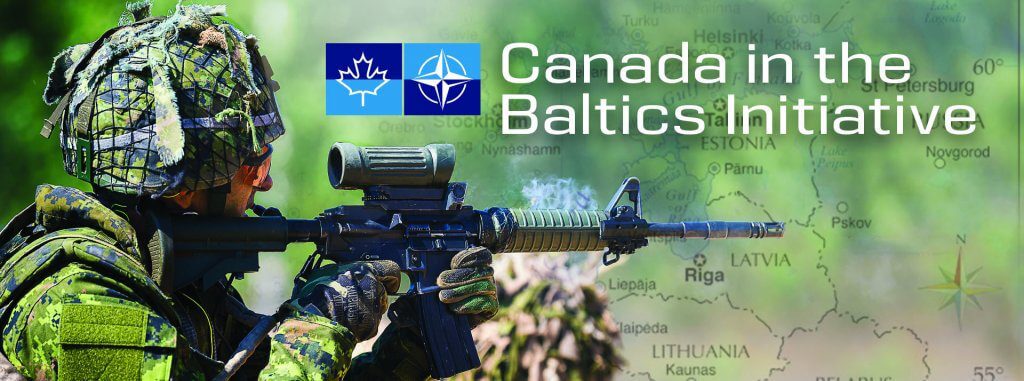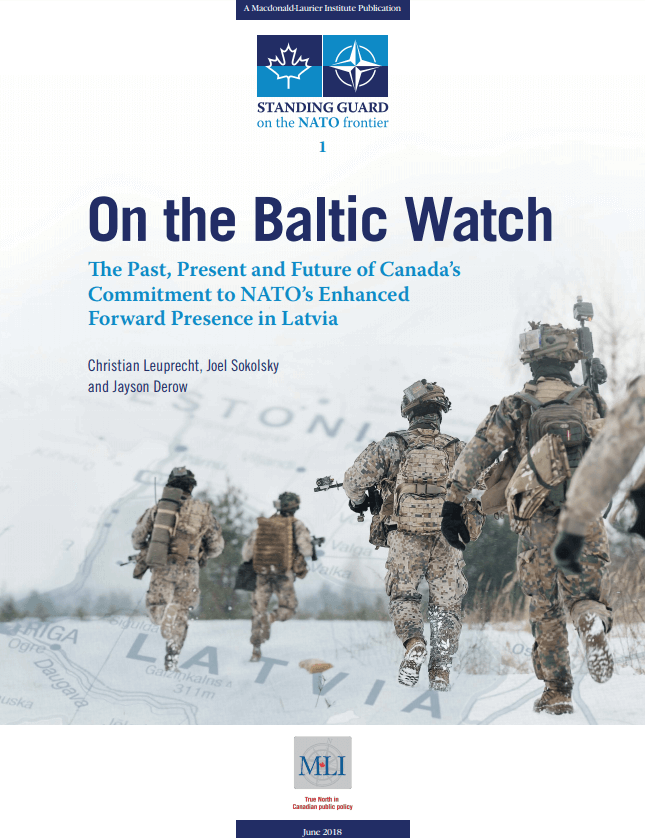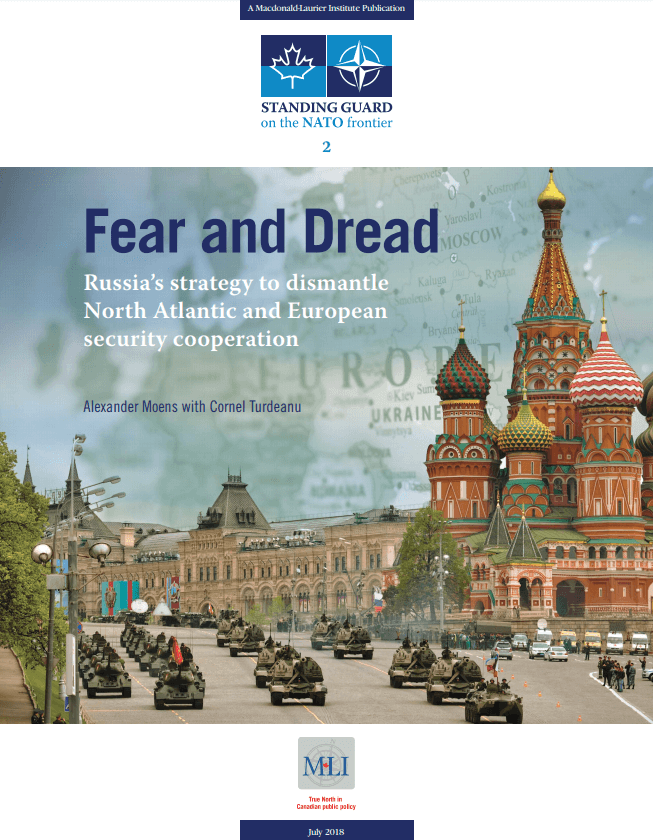A missed opportunity? Why Canada needs to craft a new strategic vision for transatlantic cooperation
By Alexander Lanoszka June 16, 2022 PDF of commentary Russia’s renewed offensive against Ukraine is arguably the most significant geopolitical...

The Macdonald-Laurier Institute has been at the forefront of discussion on NATO’s defence of the Baltics and the threat posed by Russia. We are pleased to expand our work here under the “Canada in the Baltics Initiative” that lays out in clear terms some of the more underappreciated elements posed by Russia’s renewed challenge to the West.
 The Kremlin today threatens the very foundations of the NATO alliance. It does so through an array of approaches that are designed to sow discord and undermine NATO – from cyber attacks and disinformation to conventional military and nuclear menacing. The Baltic countries are at the frontline of this challenge. But all countries in NATO are exposed to these increasingly aggressive moves by a revanchist Russia.
Of particular concern is its frequent use of information warfare to influence the European and North American debate about identity politics, nationalism, and multilateral organizations. Such asymmetric assaults are particularly corrosive to Western democracies, undermining our own population’s confidence in our democratic institutions.
Canada is not immune to such “active measures.” For instance, Canadian troops deployed to Latvia have been the target of crude disinformation activities. And, as Prime Minister Trudeau has revealed, Canada was also the target of Russian cyber threat activity during the 2015 federal election.
The Kremlin today threatens the very foundations of the NATO alliance. It does so through an array of approaches that are designed to sow discord and undermine NATO – from cyber attacks and disinformation to conventional military and nuclear menacing. The Baltic countries are at the frontline of this challenge. But all countries in NATO are exposed to these increasingly aggressive moves by a revanchist Russia.
Of particular concern is its frequent use of information warfare to influence the European and North American debate about identity politics, nationalism, and multilateral organizations. Such asymmetric assaults are particularly corrosive to Western democracies, undermining our own population’s confidence in our democratic institutions.
Canada is not immune to such “active measures.” For instance, Canadian troops deployed to Latvia have been the target of crude disinformation activities. And, as Prime Minister Trudeau has revealed, Canada was also the target of Russian cyber threat activity during the 2015 federal election.
 This project had the goal of creating a platform for the leading experts on such topics as Canada’s mission in Latvia, Russia’s hybrid warfare strategy and how NATO should respond, and an examination of the dangers of Russian disinformation campaigns. This project was an unqualified success, with papers that received extensive media coverage and two high-level panel events.
The first study emphasized the need for Canada to renew its mission in Latvia, and was authored by MLI Munk Senior Fellow Christian Leuprecht, Joel Sokolsky from the Royal Military College of Canada, and Jayson Derow from the NATO Association of Canada. The second was authored by MLI’s new Senior Fellow Alexander Moens, professor at Simon Fraser University with Cornel Turdeanu; it explored Russia’s strategy against NATO. A third paper by Senior Fellow Marcus Kolga expands this analysis to look at Russia’s disinformation campaign against the West.
The next phase of our work begins in 2019, where we will continue and expand our focus with a “Canada in the Baltics Initiative” that lays out in clear terms some of the more underappreciated elements posed by Russia’s renewed challenge to Canada and our allies.
This project had the goal of creating a platform for the leading experts on such topics as Canada’s mission in Latvia, Russia’s hybrid warfare strategy and how NATO should respond, and an examination of the dangers of Russian disinformation campaigns. This project was an unqualified success, with papers that received extensive media coverage and two high-level panel events.
The first study emphasized the need for Canada to renew its mission in Latvia, and was authored by MLI Munk Senior Fellow Christian Leuprecht, Joel Sokolsky from the Royal Military College of Canada, and Jayson Derow from the NATO Association of Canada. The second was authored by MLI’s new Senior Fellow Alexander Moens, professor at Simon Fraser University with Cornel Turdeanu; it explored Russia’s strategy against NATO. A third paper by Senior Fellow Marcus Kolga expands this analysis to look at Russia’s disinformation campaign against the West.
The next phase of our work begins in 2019, where we will continue and expand our focus with a “Canada in the Baltics Initiative” that lays out in clear terms some of the more underappreciated elements posed by Russia’s renewed challenge to Canada and our allies.
By Alexander Lanoszka June 16, 2022 PDF of commentary Russia’s renewed offensive against Ukraine is arguably the most significant geopolitical...
OTTAWA, ON (March 30, 2022): In recognition of their efforts toward advancing Baltic security, MLI Senior Fellow Marcus Kolga and...
MLI Senior Fellow Richard Shimooka spoke with CTV News regarding the announcement that additional Canadian soldiers are being deployed...
MLI’s Annual Foreign Policy and International Affairs Survey reveals both opportunities and challenges for policy-makers who are tasked with securing...
Canada has achieved a lot for European security, even if you would never know that from listening to either the...
|
|
Thank you for Signing Up |

323 Chapel Street, Suite #300
Ottawa, Ontario, K1N 7Z2 Canada
613.482.8327
Support the Macdonald-Laurier Institute to help ensure that Canada is one of the best governed countries in the world. Click below to learn more or become a sponsor.
© 2023 Macdonald-Laurier Institute. All Rights reserved.
This site uses cookies. By continuing to browse the site you are agreeing to our use of cookies.
Add this ID to the plugin's Hide Specific Tweets setting: